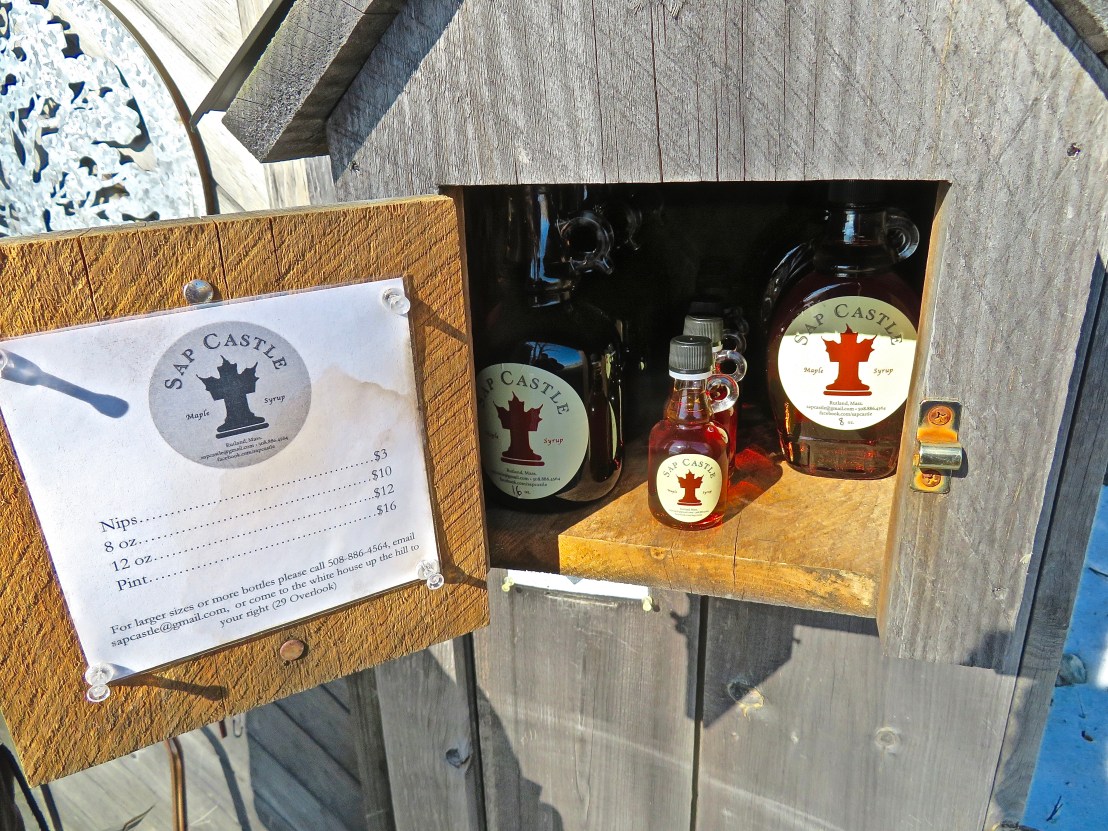In New England, mid to late February is the start of the maple syrup making season.
Up until the Civil War, using maple sugar was an act of political protest for many northern abolitionists, who refused to use cane sugar produced by slave colonies in the Caribbean. New England forests had been over logged to build ships for the slave trade of the era. Abolitionists attempted to reseed decimated areas with maple trees, and use maple sugar rather than cane for their needs.
The “Sap Castle” in Rutland, MA welcomes visitors to view the sugaring process and learn about its history during February and March.














Interesting info about the abolitionist protest. Enjoyed the photos too, thanks for this descriptive tour of the Sap Castle maple syrup process.
I didn’t now about the abolitionist link before I tour there, either! Live and learn! Thanks so much for visiting.
I find it heartening that this business is still run by trusting people to be honest. I hope that trust won’t be disappointed. The different hues of maple are beautiful.
It is heartening, and in the Summer quite a number of farmstands in the area run on the honor system. I’m glad that the local foods movement is gaining more traction!
It is heartening, and many local farm stands run this way in the Summer. I’m glad the whole local foods movement is gaining traction here.
lovely captures 🙂 such an interesting process!! is it taking place the year round or is seasonal?
Thanks! It’s a Spring thing, the temperature has to be just right. When I was visiting, the owners said they liked maple syrup in their coffee. That sounded unlikely to me, but I tried it, and loved it. Live and learn! 😉
Now I feel like I should try it too 😀
What an interesting process. That bit of history reveals so many compled linkages – forest tree felling to ships to slave trade to sugarcane, and that using maple syrup was a form of abolitionist protest. Fascinating.
I wasn’t aware of this history myself before I visited there. It is fascinating. Plus, I took the owner’s advice, and now put maple syrup in my coffee. Yum!